The literal translation of la bella figura from Italian means beautiful figure. From the cradle, little Italian bambinos are raised with the knowledge that presenting la bella figura means striving to look and act your best in every situation.
In the book "Lovers" by Judith Krantz, when the heroine, Gigi meets two businessmen she is immediately struck by the care they have taken with their appearance and grooming.
"Their suits, their shirts, their ties, their shoes, their haircuts, even their fingernails were all beyond perfection, if there was such a thing...
Bella figura. As the words popped into her mind, she knew instantly that the Collins brothers were Italian by heritage. No American businessman without Italian blood would lavish the time, money and attention that were necessary to look the way they did.
To present la bella figura to the world, no matter what was going on inside, was an Italian tradition that reached from the nobility to the peasants."
Of course, you don't have to be an Italian to achieve this -- you just have to think like one.
But achieving la bella figura is much more than putting time and energy into the image you present through clothes and grooming it goes much deeper than that.
To Italians, presenting yourself well in thought, word and deed is a matter of personal dignity, writes Raeleen DAgostino Mautner in her book, Living La Dolce Vita.
The foreign visitor to Italy is typically amazed to observe how polished the men and women of the bel paese look, how good they appear to feel about themselves, and how graciously they interact with one another. Italian life is undeniably lived with a constant eye toward aesthetic beauty, dignity and civility. Learning to enhance the body and mind one is born with is more important than having been endowed with genetic perfection, she writes.
To me, an Italian-American mother, la bella figura is about looking and acting your best in every situation while savoring the simple things in life, such as family, food, wine, good conversation, books and movies.
It is about slowing down your life to appreciate the beauty that is already around you and acknowledging the blessings you already have in your life.
Much of my inspiration is from European women who seem to naturally embody these qualities and instinctively live a life focused on these simple pleasures.
Theyre likely to judge you on what youve read and not what you have. Its not a consumer culture. Its about honoring time and figuring out how to do more with less and being creative and using your imagination. Debra Ollivier, author of Entre Nous and What French Women Know.
I hope by reading this book you are able to live a richer, fuller life without having to spend a dollar more to do so. In fact, my goal is to help you live this type of lifestyle using less money, having less stuff, and incurring less stress.
I am sharing some of what has inspired me over the years. There can be beauty and art in the way you: dress, eat, act, decorate your home, spend your money and use your leisure time. You can find beauty in everything around you and everything you do.
Living La Dolce Vita
I talians know how to live. They know how to eke every last drop of pleasure out of life by enjoying a bowl of pistachio gelato, savoring the feel of an ocean breeze or soaking in the sounds and sights of a night at the opera. They know that the secret to life is in living, not having.
This section is about how to live a life rich in all the things that money cant buy. At the end of your life, what will remain are your memories about how you lived. Make them sweet remembrances. As you live your life, try to ensure you will not have any regrets in how you spend the moments of your life. This is about how you spend your time because your time is your life.
The first thing you need to do to truly live a life that is in line with la bella figura is to make sure you are filling your life doing instead of buying.
Experiences Instead of Things
F or me creating la bella figura involves living a life filled with quality over quantity. It is about realizing that less is more. In its essence, it means valuing experiences over possessions.
This might mean spending your leisure time with friends. For instance, maybe lingering over a cafe au lait at the neighborhood coffee shop instead of meeting that same friend for a shopping excursion at the mall.
It could mean working fewer hours so you have more time to spend with your friends and family or more time to indulge in your hobbies and passions.
Maybe for you, it means living with that old couch so you can spend money on piano lessons for your children. It might mean using the same dishes and silverware you got as a wedding present twenty years ago and splurging on a membership at the opera or instead.
Some friends of mine recently bought a new vehicle that will cost them a bundle in monthly car payments, not to mention insurance. Because I love to travel, I would rather save that monthly payment and spend it on a trip to New York City or if I save long enough a vacation to South America. In other words, I would rather drive my trusty, paid-off vehicle even if it is a beater and the farthest thing from cool and spend my money on experiences instead. As long as it gets me from point A to point B, I dont care. Id rather have more money to spend on an experience I can remember on my deathbed.
It seems many Europeans especially French and Italians in particular agree:
Our next vacation means much more to us than a new car and we would never sacrifice the former for the latter except in case of dire necessity. Give us being and feeling over having any day, Mireille Guiliano of French Women Dont Get Fat.
Many Europeans have had to be frugal credit is not as easily obtained in many countries. And lets face it you cant spend money you dont have. At least not without credit. Its very Euro chic to only spend what you can afford and to save up for something special. I think when you have to save for something you end up appreciating it more. Having less access to credit encourages Europeans to prioritize their spending for maximum satisfaction.
In Cest La Vie, author Suzy Gershman writes, People in France made less money than those in the Unites States but still lived better partly because of this slower pace of life, partly because of the cultural importance of a good meal (with good wine, bien sur) and partly because with less discretionary income, priorities were better defined. If a French person had to choose between new clothes or a concert ticket, the ticket usually won out.




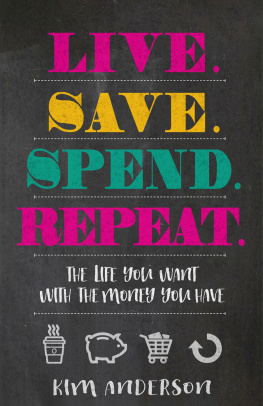
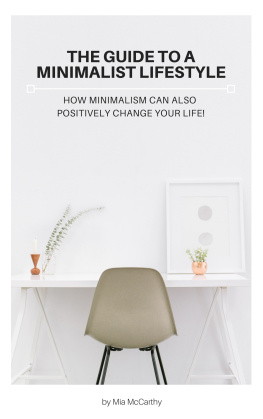

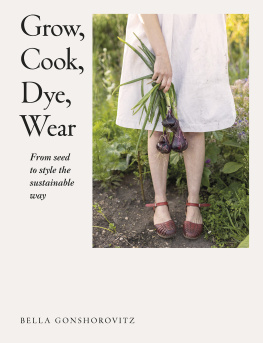
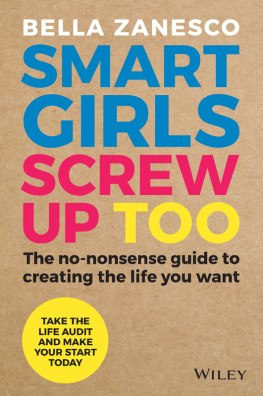
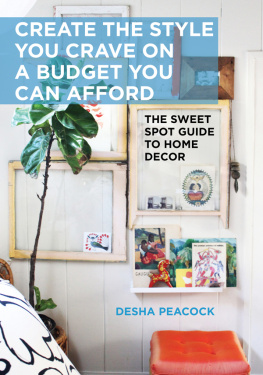
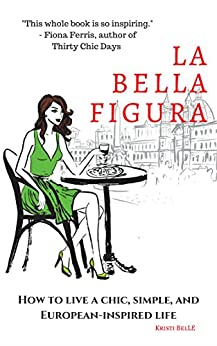
 Created with Vellum
Created with Vellum